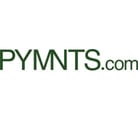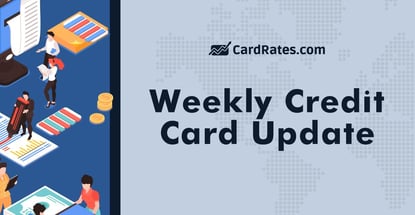For media inquiries on these stories and more, contact credit card expert and industry analyst Bill Hardekopf at (205) 985-9725 or billh@cardrates.com.
1. Visa Faces Antitrust Investigation Over Debit Card Practices
 The Justice Department is investigating whether Visa is engaging in anticompetitive practices in the debit card market, a probe that casts a cloud over a core part of its business.
The Justice Department is investigating whether Visa is engaging in anticompetitive practices in the debit card market, a probe that casts a cloud over a core part of its business.
The department’s antitrust division has been gathering information and asking whether Visa has limited merchants’ ability to route debit card transactions over card networks that are often less expensive. Many of the department’s questions have focused on online debit card transactions, but investigators have asked about in-store issues as well.
• Story By: AnnaMaria Andriotis and Brent Kendall, The Wall Street Journal
2. Credit Cards Slash $99 Billion From Spending Limits During Pandemic
 Big banks trimmed credit limits by hundreds or thousands of dollars as the Covid-19 pandemic spread. The 14 lenders that dominate U.S. credit cards slashed $99 billion from their customers’ spending limits in 2020, mostly affecting financially troubled households.
Big banks trimmed credit limits by hundreds or thousands of dollars as the Covid-19 pandemic spread. The 14 lenders that dominate U.S. credit cards slashed $99 billion from their customers’ spending limits in 2020, mostly affecting financially troubled households.
Capital One led the way by paring $30 billion from limits by the end of 2020. Citigroup and JPMorgan Chase each saw their totals fall by $19 billion. Numbers aren’t typically disclosed in corporate earnings reports, with annual figures appearing only recently in arcane filings with the Federal Reserve.
• Story By: Shahien Nasiripour, Bloomberg
3. Covid-Related Fraud Has Cost Americans $382 Million
 Fraud linked to the Covid pandemic has cost Americans $382 million, according to the Federal Trade Commission. More than 217,000 people had filed a coronavirus-related fraud report with the agency since January 2020. The median loss was $330.
Fraud linked to the Covid pandemic has cost Americans $382 million, according to the Federal Trade Commission. More than 217,000 people had filed a coronavirus-related fraud report with the agency since January 2020. The median loss was $330.
However, losses skewed higher for seniors: $500 for people in their 70s and $900 for those in their 80s.
• Story By: Greg Iacurci, CNBC
4. Most Unemployment Benefits Won’t Be Taxed
 The $1.9 trillion Covid stimulus package provides a tax break for the millions of Americans who received unemployment compensation last year. For tax purposes, unemployment compensation is considered income, so it’s taxable. But Congress provided a one-time exemption in the American Recovery Relief Act, which President Biden signed into law on March 11.
The $1.9 trillion Covid stimulus package provides a tax break for the millions of Americans who received unemployment compensation last year. For tax purposes, unemployment compensation is considered income, so it’s taxable. But Congress provided a one-time exemption in the American Recovery Relief Act, which President Biden signed into law on March 11.
Taxes are waived on the first $10,200 in unemployment benefits for individual taxpayers, and up to $20,400 for married couples filing jointly who had an adjusted gross income of less than $150,000 for 2020.
• Story By: Herb Weisbaum, Consumers’ Checkbook
5. Citigroup CEO Jane Fraser Bans Friday Zoom Calls to Combat Covid Burnout
 Citigroup has banned internal Zoom calls on Fridays in an effort to stop staffers from running themselves ragged while they work from home. Fraser, the first woman to lead a major Wall Street bank, said staffers will still need to meet with regulators and clients by video.
Citigroup has banned internal Zoom calls on Fridays in an effort to stop staffers from running themselves ragged while they work from home. Fraser, the first woman to lead a major Wall Street bank, said staffers will still need to meet with regulators and clients by video.
She also urged employees to avoid scheduling calls outside of their traditional pre-pandemic working hours and to use their vacation days. The bank will give all staff a day off on May 28, which Fraser declared a company holiday called “Citi Reset Day.”
• Story By: Noah Manskar, New York Post
6. Pandemic, Credit Reporting Issues Send CFPB Complaints Up 54%
 The Consumer Financial Protection Bureau found in its Consumer Response Annual Report for 2020 that there were about 542,300 complaints last year. That’s an almost 54% increase from 2019.
The Consumer Financial Protection Bureau found in its Consumer Response Annual Report for 2020 that there were about 542,300 complaints last year. That’s an almost 54% increase from 2019.
The uptick in complaints was directly related to the pandemic. 58% of the complaints were related to credit and consumer reporting, followed by debt reporting (15%), credit card (7%), checking or savings (6%), and mortgage complaints (5%).
• Story In: PYMNTS
7. Your Credit Score Isn’t All That’s Important. Here’s Another Key Number Lenders Look At
 Although your credit score plays a big role in lending decisions, it’s not the only thing that matters. Lenders also look at your debt-to-income (DTI) ratio — the amount of your monthly gross income you need to put toward debt payments.
Although your credit score plays a big role in lending decisions, it’s not the only thing that matters. Lenders also look at your debt-to-income (DTI) ratio — the amount of your monthly gross income you need to put toward debt payments.
To calculate this, divide your monthly debt payments (your credit card payments, auto loan, mortgage, and any other debts you have) by your gross monthly income. Say your gross monthly income is $3,000. You have $200 in credit card payments and a $400 auto loan payment, for a total of $600. Your DTI ratio would be $600 divided by $3,000, which is 20%.
• Story By: Lyle Daly, The Motley Fool
8. Chase Sapphire Preferred and Reserve Cards Launch Massive 80k and 60k-Point Welcome Bonuses
 Chase just reintroduced the lucrative 80,000-point welcome bonus on the Chase Sapphire Preferred® Card and added a new, elevated offer on the Chase Sapphire Reserve® worth 60,000 points.
Chase just reintroduced the lucrative 80,000-point welcome bonus on the Chase Sapphire Preferred® Card and added a new, elevated offer on the Chase Sapphire Reserve® worth 60,000 points.
New Sapphire Preferred cardholders can earn 80,000 bonus points after spending $4,000 on purchases in the first three months from account opening. Plus earn a $50 statement credit on grocery purchases within your first year after account opening. New Sapphire Reserve cardholders can earn 60,000 bonus points after spending $4,000 on purchases in the first three months from account opening.
• Story By: Alexandria White, CNBC
9. Capital One, Hopper Team Up on New Travel Portal
 Capital One just announced a new partnership with travel tech company Hopper to create an all-new booking experience for Capital One cardholders that will hopefully make using the issuer’s travel portal a more attractive option.
Capital One just announced a new partnership with travel tech company Hopper to create an all-new booking experience for Capital One cardholders that will hopefully make using the issuer’s travel portal a more attractive option.
Hopper is a travel booking app that uses a prediction algorithm to make personalized travel recommendations. The site claims it can perform with 95% accuracy, helping travelers know when the best time to book will be and facilitating that booking process. You can book flights, hotels, and car rentals. But you can also set notifications for price drops on specific trips, freeze prices (for a small fee), and even add on trip protection plans.
• Story By: Madison Blancaflor, The Points Guy
10. Huge Growth in Mobile Transactions During Covid-19
 Mobile payment transactions skyrocketed as a direct result of lockdowns during the coronavirus pandemic, according to the new annual report from GSMA. It shows that the number of registered mobile payment accounts grew by 13% globally during 2020, reaching a figure of more than 1.2 billion, which is twice that predicted.
Mobile payment transactions skyrocketed as a direct result of lockdowns during the coronavirus pandemic, according to the new annual report from GSMA. It shows that the number of registered mobile payment accounts grew by 13% globally during 2020, reaching a figure of more than 1.2 billion, which is twice that predicted.
Growth was most rapid in countries where governments were more proactive with their pandemic relief measures. One of the core areas where mobile money saw the most use was by individuals moving money to support family and friends back home.
• Story By: Rob Clymo, TechRadar
11. Why Biden Wants to Replace the Credit Bureaus
 Biden has called for the creation of a new public credit reporting agency. It would move credit reports out of the hands of the three bureaus and into the hands of the CFPB. The new government option would accept non-traditional payment histories such as rent and utility bill payments.
Biden has called for the creation of a new public credit reporting agency. It would move credit reports out of the hands of the three bureaus and into the hands of the CFPB. The new government option would accept non-traditional payment histories such as rent and utility bill payments.
Biden also wants to create non-discriminatory algorithms. However, it’s not clear how those new algorithms would work. Biden’s main motivation in replacing the credit bureaus is to make homeownership more accessible. As such, Biden proposes that federal housing programs, such as the FHA, would have to use the new scoring model.
• Story By: Emma Newbery, The Motley Fool
12. Santander to Accelerate Rollout of Eco-Friendly Cards in Europe
 Banco Santander announced that it will be accelerating the rollout of eco-friendly cards in the European region. The Bank stated by 2025, all debit, credit, and prepaid cards across Poland, Portugal, Spain, and the U.K. will be made of sustainable materials, such as recycled PVC or corn-based plastic substitute.
Banco Santander announced that it will be accelerating the rollout of eco-friendly cards in the European region. The Bank stated by 2025, all debit, credit, and prepaid cards across Poland, Portugal, Spain, and the U.K. will be made of sustainable materials, such as recycled PVC or corn-based plastic substitute.
• Story By: Megha Bhattacharya, IBS Intelligence
Advertiser Disclosure
CardRates.com is a free online resource that offers valuable content and comparison services to users. To keep this resource 100% free, we receive compensation for referrals for many of the offers listed on the site. Along with key review factors, this compensation may impact how and where products appear across CardRates.com (including, for example, the order in which they appear). CardRates.com does not include the entire universe of available offers. Editorial opinions expressed on the site are strictly our own and are not provided, endorsed, or approved by advertisers.





![3 FAQs: ATM Card vs. Debit Card vs. Credit Card ([updated_month_year]) 3 FAQs: ATM Card vs. Debit Card vs. Credit Card ([updated_month_year])](https://www.cardrates.com/images/uploads/2016/05/atm-card-vs-debit-card-vs-credit-card--1.png?width=158&height=120&fit=crop)
![What Card is in the Jennifer Garner Credit Card Commercial? ([updated_month_year]) What Card is in the Jennifer Garner Credit Card Commercial? ([updated_month_year])](https://www.cardrates.com/images/uploads/2018/05/jennifer-2.jpg?width=158&height=120&fit=crop)
![Can You Pay a Credit Card with a Credit Card? 3 Ways Explained ([updated_month_year]) Can You Pay a Credit Card with a Credit Card? 3 Ways Explained ([updated_month_year])](https://www.cardrates.com/images/uploads/2017/02/card-with-card-2.png?width=158&height=120&fit=crop)



![Can I Use My Debit Card as a Credit Card? 3 Things to Know ([updated_month_year]) Can I Use My Debit Card as a Credit Card? 3 Things to Know ([updated_month_year])](https://www.cardrates.com/images/uploads/2016/11/can-i-use-my-debit-card-as-a-credit-card--1.jpg?width=158&height=120&fit=crop)